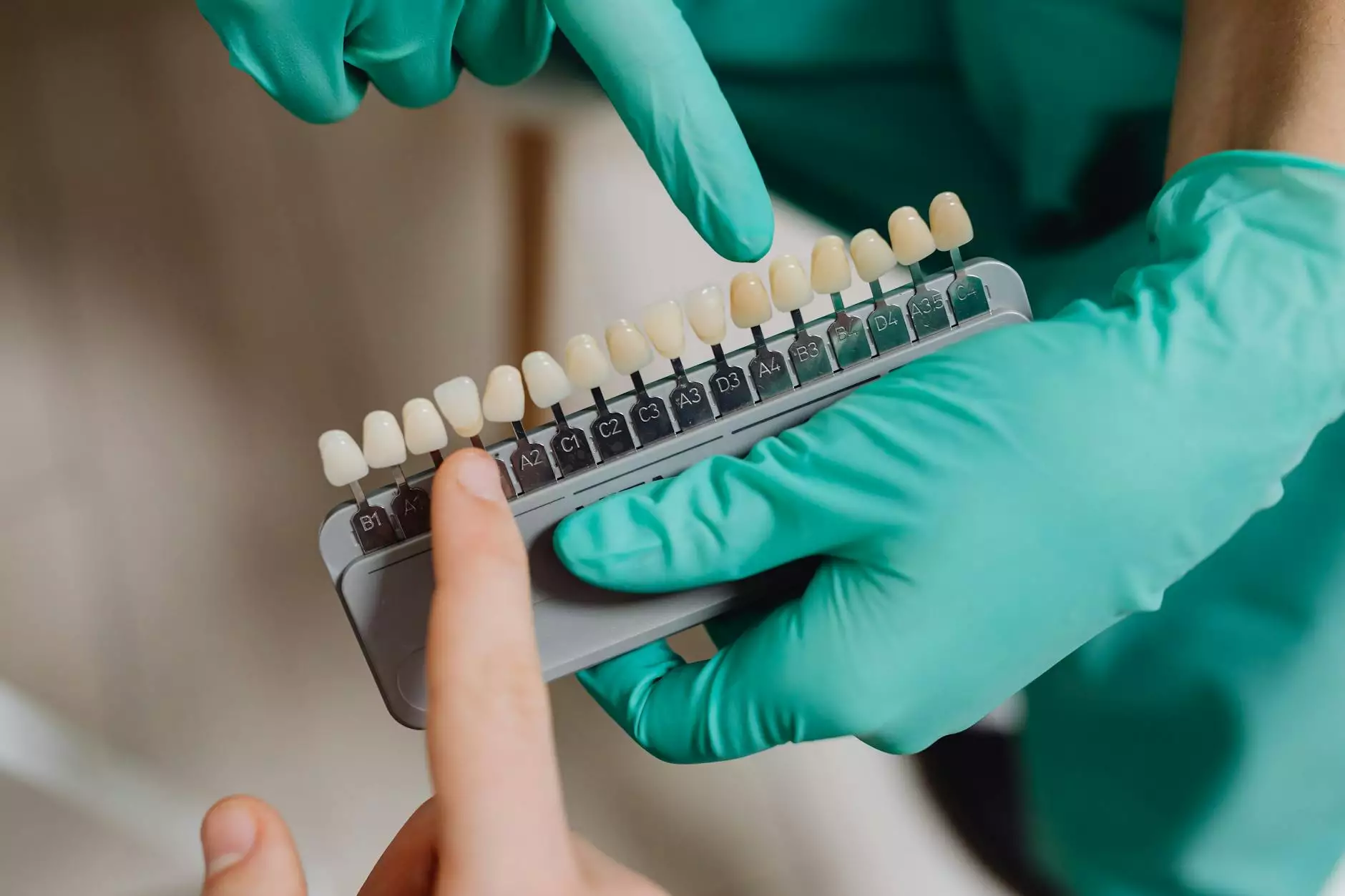Whitening Teeth: Is It Safe? A Comprehensive Guide

In today's society, having a bright, white smile is often seen as a symbol of health, success, and attractiveness. As a result, the demand for teeth whitening has surged over the years. With a plethora of options available, many individuals are left wondering, "whitening teeth is it safe?" In this article, we will delve deep into the world of teeth whitening, dissecting its safety aspects, methods, and professional insights to help you make an informed decision.
Understanding Teeth Whitening
Teeth whitening is a cosmetic dental procedure aimed at removing stains and discoloration from the teeth, resulting in a brighter appearance. Various products and techniques are available to achieve whiter teeth, ranging from over-the-counter whitening strips to professional treatments performed by dentists.
Why Do Teeth Become Discolored?
The discoloration of teeth can be attributed to a variety of factors, including:
- Diet: Consuming foods and beverages that stain teeth, such as coffee, tea, red wine, and certain berries.
- Tobacco Use: Smoking or chewing tobacco can lead to significant staining.
- Age: As we age, the enamel on our teeth wears down, revealing the yellowish dentin beneath.
- Medications: Certain medications, such as tetracycline antibiotics, can cause discoloration when taken during childhood.
- Fluorosis: Overexposure to fluoride during childhood can lead to white spots or streaks on teeth.
Types of Teeth Whitening Methods
There are several methods for teeth whitening, each with its own set of pros and cons:
1. Over-the-Counter Products
These products include whitening strips, toothpastes, and gels that can be purchased at grocery stores or pharmacies. While they are generally safe, results may vary, and they often take longer to produce visible effects.
2. Professional In-Office Whitening
One of the most effective methods is professional in-office whitening, performed by a licensed dentist. This method can produce dramatic results in just one visit, utilizing high-concentration bleaching agents and light technology.
3. Custom Take-Home Kits
These kits are provided by dentists and include custom trays filled with a professional-grade whitening gel. They offer a balance between effectiveness and ease of use.
Exploring Safety: Whitening Teeth, Is It Safe?
The question, "whitening teeth is it safe?", is frequently posed by individuals considering whitening treatments. Generally speaking, teeth whitening is considered safe when performed under the supervision of a dental professional. However, there are important safety considerations to keep in mind:
Potential Risks and Side Effects
While whitening treatments are largely safe, some individuals may experience:
- Sensitivity: Temporary tooth sensitivity is a common side effect, especially with stronger bleaching agents.
- Irritation: The gums may become irritated if the whitening agent comes into direct contact with them.
- Uneven Results: Existing dental work such as crowns or veneers may not lighten as expected, leading to uneven coloration.
Dental Assessment Before Whitening
Before undergoing any whitening treatment, it is crucial to have a dental assessment. A qualified dentist will evaluate your oral health, address any existing dental issues, and determine the most suitable whitening method tailored to your needs.
Best Practices for Safe Teeth Whitening
To ensure safe and effective teeth whitening, consider the following best practices:
- Consult with a Dentist: Always seek professional advice before starting any whitening treatment.
- Follow Instructions: Adhere to the guidelines provided with over-the-counter products or those given by your dentist.
- Limit Use: Avoid excessive whitening, which can lead to enamel erosion and tooth sensitivity.
- Maintain Oral Hygiene: Regular brushing and flossing can help maintain your results longer.
- Choose Quality Products: Opt for well-reviewed and ADA-approved products to ensure safety and effectiveness.
The Role of Dentists in Teeth Whitening
Dentists play a crucial role in ensuring the safety and effectiveness of teeth whitening. By opting for professional treatments, you gain several benefits:
- Expert Evaluation: Dentists can assess the condition of your teeth and overall oral health before proceeding with whitening.
- Customized Treatment Plans: Professionals can tailor treatment plans based on your specific needs and goals.
- Access to Advanced Technology: In-office treatments often involve proprietary techniques and tools that may provide faster, more effective results.
Post-Treatment Care for Whiter Teeth
After undergoing teeth whitening, proper care is essential to maintain your results. Here are some helpful tips:
- Avoid Staining Foods: For at least 24 to 48 hours post-treatment, limit consumption of staining foods and beverages.
- Stay Hydrated: Drink water frequently to help rinse away food particles and reduce acidity levels.
- Use a Straw: When consuming potentially staining beverages, using a straw can minimize contact with your teeth.
- Continue Oral Hygiene Practices: Maintain a regular brushing and flossing routine.
Conclusion
In conclusion, the question "whitening teeth is it safe?" can be answered affirmatively when proper precautions are taken. Teeth whitening can be a safe and effective way to enhance your smile if conducted under the guidance of a qualified dentist. By understanding the various methods, potential risks, and best practices, you can achieve the bright smile you've always desired without compromising your oral health.
If you're considering teeth whitening, or if you have further questions, don't hesitate to contact the experts at teethattiongbahru.com. Our dedicated team is here to help you achieve your dental goals safely and effectively!



